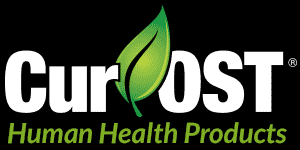Vegetables can be a very important and beneficial aspect to our health from a dietary perspective. While most vegetables are viewed as healthy because of nutritional benefits, many contain within them potent phytochemicals which can impact many aspects of our health. Beetroot is one of them and well researched to impact cardiovascular health, energy, nutrition, and our digestive microbiome. The red color to beetroot is a signal all of its own regarding the benefits to our health, so let’s dive into this important root vegetable.
In Traditional Chinese Medicine, there are five organs of interest with one being the heart. Additionally, colors are assigned to these organ systems which are viewed as being beneficial. In TCM, the heart is assigned the color red and thus foods that are naturally red in color are viewed as being beneficial to the heart and cardiovascular system. Beetroot, being red, is one of the top root vegetables for cardiovascular health. Going one step further, in TCM, anxiety and many mood disorders are viewed as being related to disturbances of the Shen or spirit, which is housed in the heart. So, in today’s ‘anxiety ridden‘ society, one could say we all have some level of heart disturbance or even true pathology. One more push for beetroot in the diet!
Root vegetables, which include others such as potatoes of various species, are well known for their nutritional content, often packed with vitamins, minerals, and macronutrients. These vegetables are also loaded with carbohydrates, which for some are a concern, while for others not so much. Keep in mind that even though they are often high in carbohydrates, the type of carbohydrate is usually of the complex variety, which means low glycemic index and not as harmful to blood sugar levels and diabetes. In fact, many of these root vegetables, including beetroot, have been researched on the benefits to metabolic conditions, diabetes, and obesity. These clinical benefits are often through the anti-inflammatory benefits of the herb and impact on the digestive microbiome, helping to restore balance.
Beetroot is viewed as being a neutral to mildly warming vegetable, touted with benefits during the winter time as it helps to rid ‘cold’ from the body and improve circulation. The red coloration is due to phytochemicals called betalains, which have tremendous antioxidant and anti-inflammatory properties, and can impact many chronic health ailments from arthritis to cancer. (Clifford, 2015)
Beetroot has been heavily researched in the field of cardiovascular health and fitness with benefits noted on all levels. Clinically, beetroot is a root vegetable that is loaded with bioavailable nitrates, which are converted in the body to nitric oxide, which then impacts blood circulation by dilating blood vessels. Thus, due to these nitrates, beetroot has been noted in research studies to improve physical fitness and endurance, but also can improve cardiovascular health and reduce hypertension. Beetroot has also been researched for benefits on cognitive health and even anxiety, which can be directly related to improved blood flow or circulation to the brain and heart itself. (Clifford, 2015)
Going one step further, beetroot and the associated potent antioxidant chemicals call betalains have been researched in the field of cancer prevention and treatment. Cancer is just one of many clinical health ailments that is strongly linked back to oxidative stress and inflammation in the body. Beetroot is not only a source of betalains, but also other potent phytochemicals from polyphenols to saponins, which can provide antioxidant and anti-inflammatory support. Additionally, beetroot is a major source of beta-carotene which is a nutrient vital to many cellular functions in the body. (Lechner, 2019)
Key Points and Benefits of Beetroot for Your Health
- Potent source of natural vitamins, minerals, fiber, carbohydrates, and protein
- Potent source of natural antioxidants, including betalains, which benefit cellular health, immune function, digestion, and inflammation
- Potent source of natural nitrates which are used to create nitric oxide in your body which benefits circulation, cardiovascular health, and many other physiological functions
- Anti-cancer properties
- Anti-inflammatory properties
- Benefit the digestive microbiome and ease constipation
- General detoxification benefits, improves liver function and benefits the kidneys
One key concept to keep in mind with beetroots and other sources of natural nitrates. The nitrates are converted in your body to nitric oxide, which has many benefits including cardiovascular health, however there is a caveat here. The nitrate-nitrite cycle is dependent upon saliva production and your oral microbiome. In order to be properly converted to nitric oxide and benefit your health, your oral microbiome must be balanced ideally and if it is out of balance, this conversion may not take place! Thus, over use of oral hygiene products, including mouthwashes, are not always a good idea as they can kill off healthy or normal bacteria and create microbiome imbalances, much like sanitizers on your hands. Trust your diet. Eat properly and use herbs as needed to maintain your health instead.
Increasing your consumption of fruits and vegetables is a no-brainer when it comes to health, but using specific vegetables and fruits can bring more benefits. Beetroot is one of the main vegetables that can impart many clinical benefits upon your mind, body, and overall health.
Products with Beetroot:
Cur-OST Silver Beetroot
Author: Tom Schell, D.V.M, CVCH, CHn


